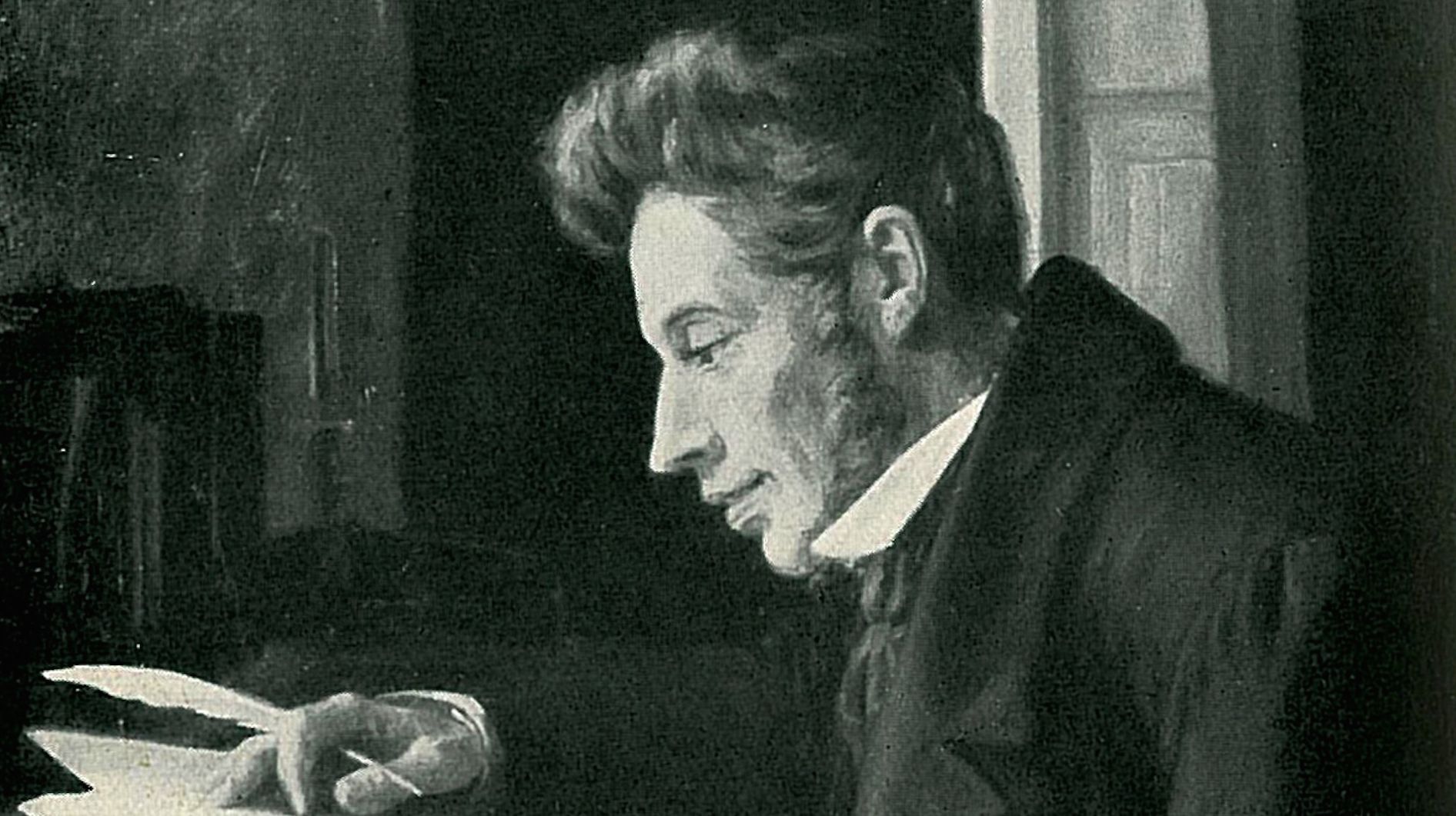Modernity and Its Idols
(from the preface to my book The Natural Moral Law) As Aeneas, our great ancestor, Did from the flames of Troy upon his shoulder The old Anchises bear . . ….
Kinds Of Gaps In Knowledge: The Conflict Of Appeals To God And Methodology Naturalism In Developing Explanations Of The World
First Published: The Heythrop Journal © 2013 Trustees for Roman Catholic Purposes Registered. Published by Blackwell Publishing Ltd
To refer to God in explaining a physical event or process is called using the ‘God of the gaps.’ This is a pejorative phrase in that it is thought to indicate superstition and hinder the under standing of how the physical world actually works. To invoke God as the explanation is said to not further one’s understanding of the physical causes, and indeed to hinder understanding. Conversely, methodological naturalism explains physical events without reference to non material causes. This does not commit one to metaphysical atheism or naturalism, but is a method/model for interpretation that is believed to be superior because it offers explanations that can be duplicated by others in contrast to explanations that involve ‘an act of God.’ The goal of methodological naturalism is knowledge, and proof that knowledge has been attained is that the results can be duplicated and confirmed by others – the results are universal. The defect of appeals to God is that such appeals cannot be confirmed, are used where ignorance leaves a lacuna and abandoned as soon as that space is filled with a natural explanation, and do not further our understanding of the physical world. And yet, both historically and currently, appeals are made by notable thinkers to a God of the gaps style explanation, in accounting for design or irreducible complexity, beauty, values, and meaning in life. I will endeavor to show that filling gaps with unproven assumptions is much more common and widespread than one might think, and is done by those who speak against the ‘God of the gaps’ approach. Does a truly scientific worldview require rejecting all appeals to God as a source of explanation?
The Agnostic Inquirer: Revelation from a Philosophical Standpoint
First Published: Theology, Ethics and Philosophy – The Agnostic Inquirer: Revelation from a Philosophical Standpoint
This book was a pleasant surprise. As I glanced over its contents to prepare reading I noted that it was going to have some of the standard arguments about belief in God and revelation: God is possible, there is reason to believe God exists, the problem of evil does not threaten this belief, there is reason to accept special revelation. Because these arguments are so readily available I was not very impressed with another book on the subject. However, as I read the book I came to the conclusion that it does much more than its authors give themselves credit for. It was this realization that made the book such a pleasant and encouraging read.
Book Review: World Christianity in the 20th Century & A Short History of World Christianity
First Published: Blackwell Publishing ltd. World Christianity in the 20th Century & A Short History of World Christianity
These books compliment each other very well, and together they provide the general reader or student with a helpful overview of how Christianity has developed throughout the world, and the particular challenges it faced in the twentieth century. Written from an Anglican/ Episcopal perspective, the authors use an accessible writing style to present issues surrounding the worldwide scope of Christianity and ideas of ecumenicalism. These books can be read with benefit and are clearly the product of scholars who have been teaching and presenting this material for years and so have had the time to become abundantly familiar with the subject. If there is a downside, it is only that a great deal of information is fit into relatively small space, but this need not be understood as a negative because the books are an introduction to a very large amount of material.
Understanding Soren Kierkegaard: Exploring “Concluding Unscientific Postscript” and “Thinking Christianly in an Existential Context.”
First Published in “Reviews in Religion and Theology“
The combination of these books made for an insightful study of Kierkegaard’s growth as a philosopher, his writing style, and how he has been understood by subsequent thinkers. Alastair Hannay’s introduction, and Sylvia Walsh’s astute volume, together put Kierkegaard into context as a response to State Christianity and its stagnating affect on individual religiosity, as well as to non-Christian philosophy attempting to offer a systematic rationalism that incorporated some Christian terms while emptying them of meaning. My own interest in Kierkegaard was increased and deepened as I came to understand more of his intellectual and personal development as well as the challenges to which he was attempting to respond. For instance, it was helpful to see that the ‘leap of faith’ for which Kierkegaard is so well known has been misunderstood and misused by many subsequent thinkers.
Moral Objectivity and Responsibility in Ethics: A Socratic Response to Hume’s Legacy in the 20th Century
First Published in The Heythrop Jounral 2010
Current debate in metaethics includes the question of objectivity. What does it mean for a moral prescription to be objective? It is easy to see how matters of fact are objective, and it is also easy to see how matters of taste are subjective. But what about matters of morality? Given the diversity in moral beliefs and practices it appears these cannot be matters of fact. Are they thus matters of taste? If so, we are left with the unlivable conclusion that all moral prescriptions are beyond rational scrutiny. David Hume expressed these problems in a way that continues to be influential today: ‘Tis as little contrary to reason to prefer even my own acknowled’d lesser good to my greater’ (Hume, 2003: 2.III.ii). Resolving problems about moral objectivity is further complicated by the philosophical presuppositions of analytic philosophy that have dominated the 20th century, initiated in the work of G.E. Moore, and promulgated in theories such as logical positivism and ordinary language philosophy. Contemporary thinkers from both the cognitivist and the non-cognitivist camps have tried to demonstrate that moral claims are objective in the sense of being subject independent. By considering contemporary appeals to the ideally rational self to establish objectivity, and objections to rationality as a ground for objectivity, it will be argued that objectivity can be grounded in the good which in turn is grounded in human nature. This approach can be found in the Socratic denial of knowingly doing evil, and out of this a foundation for moral objectivity can be developed that does not require an appeal to the individual’s mental state and which preserves individual responsibility for knowing the good.
Natural Signs and Knowledge of God: A New Look at Theistic Arguments
First Published: Natural Signs and Knowledge of God: A New Look at Theistic Arguments, C. Stephen Evans, Oxford: Oxford University Press, 2010 (ISBN: 978-0199217168), x + 207 pp., Hb $85.00
There are many reasons to recommend C. Stephen Evans’ new book Natural Signs and Knowledge of God: A New Look at Theistic Arguments. It is accessible and open in its style, and deals skillfully with what I consider to be the most important subject we can study: our ability to know God. Indeed, one of the purposes of his book is to argue for the value of natural theology and for its place in philosophical, theological, and apologetic studies. The book can be read with profit by a wide audience, from undergraduate and graduate students to the interested general public. The chapters on the specific forms of theistic arguments serve as helpful introductions and surveys of these arguments and I plan on having my students read them. Evans also wrestles through important epistemological problems, advocating an approach traceable to Thomas Reid, and seeks to reconcile otherwise divergent Reformed and Evidentialist schools of apologetics. I found this an engaging and stimulating work that will benefit both my teaching and my research. However, I do want to argue that we must do more than simply find room for natural theology, or argue that it is possible, and instead demonstrate why it is necessary for Christianity.
Without Purpose: Modernity And The Loss Of Final Causes
First Published: The Heythrop Journal 2010
Phenomenologically, boredom is described as a lack of interest that results in a lack of motivation.1 When questioned about this lack of interest, the bored person often asserts that the given activity or object of boredom has no purpose, it does not result in happiness, or contentment, or eudemonia.2 This is even true when the object of boredom is something that the bored person also maintains to be very important, such as religious observances, education, or discipline of various kinds. Boredom in this sense can be localized, and the person’s life more generally is not ‘boring’ because the person can divert their attention and activity to objects of interest. But what happens if life itself is perceived to be boring and without interest? Here I will argue that this will be the case when life is believed to be without any purpose. This lack of purpose filters down to the various activities of life, which are perceived to be meaningless.
The Blackwell Companion to Natural Theology, William Lane Craig and J.P. Moreland
Originally Published: The Blackwell Companion to Natural Theology, William Lane Craig and J.P. Moreland (eds.), Wiley-Blackwell,
J.P. Moreland and William Lane Craig begin their introduction to ‘The Blackwell Companion to Natural Theology’ by arguing that the decline of positivism in the twentieth century has made room for studies in metaphysics and philosophy of religion. Indeed, they quote Quentin Smith from the secular journal Philo as lamenting the fact that philosophy departments are increasingly including theistic perspectives.
Kierkegaard: Thinking Christianly in an Existential Context
First Published: Kierkegaard: Thinking Christianly in an Existential Context, Sylvia Walsh, Oxford University Press, 2009 (ISBN 978-0-19-920836-4), viii + 232 pp., pb $35.
The combination of these books made for an insightful study of Kierkegaard’s growth as a philosopher, his writing style, and how he has been understood by subsequent thinkers. Alastair Hannay’s introduction, and Sylvia Walsh’s astute volume, together put Kierkegaard into context as a response to State Christianity and its stagnating affect on individual religiosity, as well as to non-Christian philosophy attempting to offer a systematic rationalism that incorporated some Christian terms while emptying them of meaning. My own interest in Kierkegaard was increased and deepened as I came to understand more of his intellectual and personal development as well as the challenges to which he was attempting to respond. For instance, it was helpful to see that the ‘leap of faith’ for which Kierkegaard is so well known has been misunderstood and misused by many subsequent thinkers.








